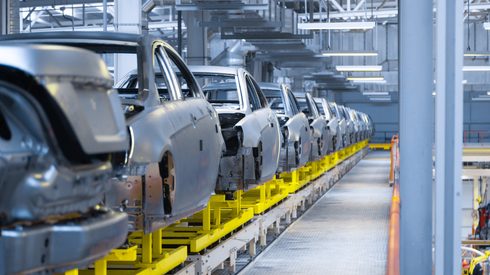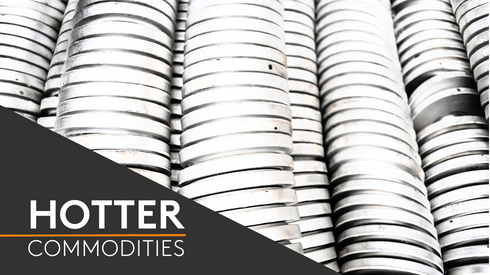The agreement will supersede an earlier joint venture between Volkswagen and QuantumScape to co-manufacture batteries and, according to the announcement, create a “highly collaborative partnership” combining QuantumScape’s technology and PowerCo’s global industrialization capabilities and manufacturing facilities.
Under the non-exclusive license, PowerCo will be able to manufacture up to 40 gigawatt-hours (GWh) per year using QuantumScape’s technology initially, with the option to expand up to 80 GWh per year, or enough to outfit approximately one million vehicles, according to the announcement.
In a video announcement on QuantumScape’s website, Siva Sivaram, QuantumScape’s president and chief executive officer, said that the agreement “includes royalty payments by PowerCo to QuantumScape when the licensed batteries are sold, along with a $130 million prepayment.”
QuantumScape’s technology enables the use of a pure lithium-metal anode, designed “for exceptional energy and power density, fast charging and a robust safety profile,” the announcement said. The partnership will target a product that will be scaled up for integration in a Volkswagen Group vehicle series.
According to QuantumScape’s website, the company’s solid-state technology “enables [less than] 15-minute fast charge (10-80%) by eliminating lithium diffusion bottleneck in anode host material.” It also “significantly increases volumetric and gravimetric energy densities by eliminating graphite/silicon anode host material.”
“Electric vehicles are the future of mobility, and this agreement with QuantumScape will ensure the Volkswagen Group’s global fleet has access to this groundbreaking battery technology for years to come,” Thomas Schmall, Volkswagen Group board member for technology, said.
“With this cooperation, we aim to bring the most sustainable and cutting-edge battery cells to our customers,” Frank Blome, CEO of PowerCo, said of the July 11 announcement. “QuantumScape’s technology is poised to enter a pivotal stage where PowerCo’s specialized expertise, resources and global factories can help facilitate the transition to industrial-scale production.”
According to the announcement, Bloom has stepped down from QuantumScape’s board of directors “to lead PowerCo in this next important phase of collaboration with QuantumScape.” Bloom had served on QuantumScape’s board of directors since 2020 as one of the two board members designated by the Volkswagen Group, which continues to be the company’s largest shareholder.
“This agreement is a major step in our long-term global scale-up strategy to bring QuantumScape’s solid-state lithium-metal battery technology to market,” Sivaram said. “Combining our cutting-edge technology with PowerCo’s expertise in manufacturing and industrialization, this deal establishes a blueprint for a capital-light business approach and positions us at the forefront of energy storage innovation. Working closely with PowerCo as our first customer will help us accelerate commercialization and adoption of these game-changing batteries together.”
As of about 12:20pm US Eastern time on Friday July 12, stocks for QuantumScape have jumped over 15% on the day and more than 60% over the previous five day period, with significant increases following Thursday’s announcement.
Gain a competitive edge with our lithium prices. Talk to us about our market-reflective lithium prices, data and analysis.






